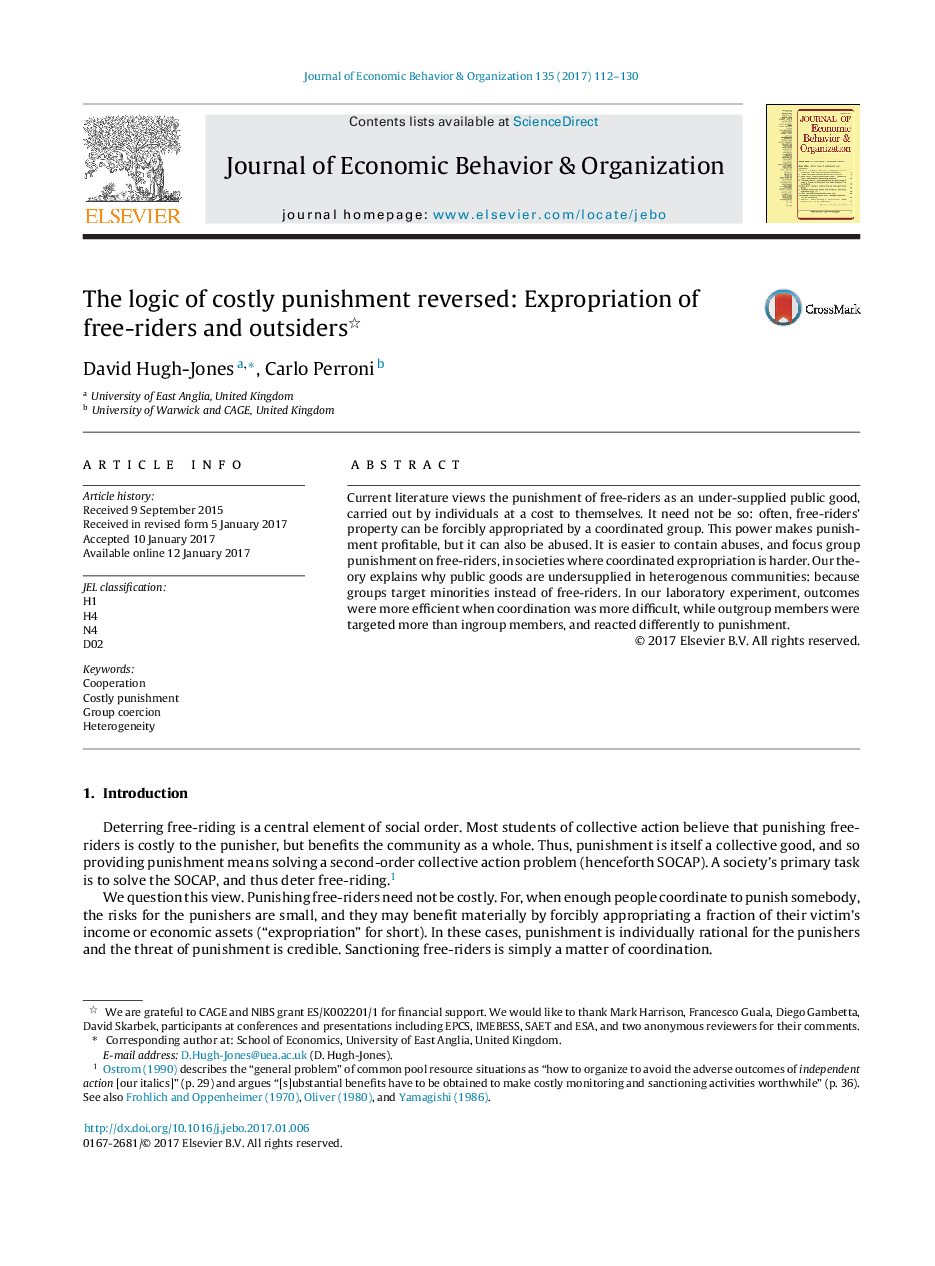| Article ID | Journal | Published Year | Pages | File Type |
|---|---|---|---|---|
| 5034587 | Journal of Economic Behavior & Organization | 2017 | 19 Pages |
â¢Coordinated punishment can be profitable to the punishers, rather than costly.â¢The power to punish may be abused to expropriate people.â¢In heterogenous societies, minorities rather than free-riders may be expropriated.â¢We show this in real world examples and a laboratory experiment.
Current literature views the punishment of free-riders as an under-supplied public good, carried out by individuals at a cost to themselves. It need not be so: often, free-riders' property can be forcibly appropriated by a coordinated group. This power makes punishment profitable, but it can also be abused. It is easier to contain abuses, and focus group punishment on free-riders, in societies where coordinated expropriation is harder. Our theory explains why public goods are undersupplied in heterogenous communities: because groups target minorities instead of free-riders. In our laboratory experiment, outcomes were more efficient when coordination was more difficult, while outgroup members were targeted more than ingroup members, and reacted differently to punishment.
